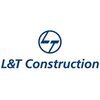Electrical Technician
300+ Electrical Technician Interview Questions and Answers

Asked in Kent plc

Q. Preventive Maintenance of All Kinds of H.V & LV Breakers, Motors, Voltage Up To 33 KV & 11 KV & 6.6.KV /2400 KW ,Transformer(15.75KV /230 KV ), Corrective Maintenance of HV/MV /LV Switches gears,VCB,ACB,MOCB,SF...
read morePreventive and corrective maintenance of various electrical equipment including breakers, motors, transformers, switches, relays, and testing/calibration of protections.
Preventive maintenance of H.V & LV breakers, motors, transformers, switches, etc.
Corrective maintenance of HV/MV/LV switchgears, breakers, cubicles, etc.
Testing and calibration of various protection relays for motors, transformers, generators.
Transformer oil BDV test, thermal scanning, earth fault and predicti...read more

Asked in Kent

Q. ES Preventive Maintenance of All Kinds of H.V & LV Breakers, Motors, Voltage Up To 33 KV & 11 KV & 6.6.KV /2400 KW ,Transformer(15.75KV /230 KV ), Corrective Maintenance of HV/MV /LV Switches gears,VCB,ACB,MOCB...
read moreThe Electrical Technician is responsible for preventive and corrective maintenance of various high and low voltage equipment and testing/calibration of protection relays.
Responsible for maintenance of motors, transformers, breakers, switches, and other equipment
Testing and calibration of protection relays for motors, transformers, and generators
Termination of high voltage motors, cable erection, installation, and load testing
Maintenance of battery banks and UPS for auxiliary ...read more
Electrical Technician Interview Questions and Answers for Freshers

Asked in Leadec India

Q. What is transformers Besics of Trasformer Induction motor UPS What is ht lt panels HT ,LT PANELS Apfc panels And all about utilities maintenance Star delta starter Vfd drive
Transformers are electrical devices that transfer electrical energy between two or more circuits through electromagnetic induction.
Transformers are used to step up or step down voltage levels in electrical power transmission and distribution systems.
They consist of two or more coils of wire, known as windings, which are wound around a core made of magnetic material.
The primary winding is connected to the power source, while the secondary winding is connected to the load.
Trans...read more

Asked in NTPC

Q. What are step-up and step-down transformers?
Step up and step down transformers are used to increase or decrease the voltage in electrical systems.
Step up transformers increase the voltage from the input to the output.
Step down transformers decrease the voltage from the input to the output.
Step up transformers have more turns in the secondary coil than in the primary coil.
Step down transformers have fewer turns in the secondary coil than in the primary coil.
Step up transformers are used in power transmission to increase...read more

Q. How to replaced electrical parts? Replacing Before same spare parts need to be choose Remove before correctly making connections note books or photo by phone Replace all are making sure test observations.
Electrical parts replacement involves choosing the right spare parts, removing the old parts correctly, making connections, and testing observations.
Choose the correct spare parts before starting the replacement process
Remove the old parts carefully and correctly to avoid damage to other components
Make connections according to the manufacturer's instructions and double-check for accuracy
Test the new parts thoroughly to ensure they are functioning properly
Take notes or photos ...read more

Asked in Saint-Gobain

Q. What is the difference between R phase, Y phase, and B phase?
R, Y, B phases are the three phases of AC power supply. They differ in their phase angle and voltage level.
R phase has a phase angle of 0 degrees and is usually connected to the red wire.
Y phase has a phase angle of 120 degrees and is usually connected to the yellow wire.
B phase has a phase angle of 240 degrees and is usually connected to the blue wire.
The voltage level of each phase is the same, but they are out of phase with each other.
The three phases are used to power thr...read more
Electrical Technician Jobs




Asked in Bridgestone

Q. What essential electrical tools should we carry?
Essential tools for an electrical technician include a multimeter, wire strippers, pliers, screwdrivers, and a voltage tester.
Multimeter: Used to measure voltage, current, and resistance.
Wire strippers: Used to remove insulation from electrical wires.
Pliers: Used for gripping, bending, and cutting wires.
Screwdrivers: Used for tightening or loosening screws in electrical components.
Voltage tester: Used to check if a circuit is live or not.
Asked in Rare Congo

Q. Phase sequence is important roles in 3 phase system. R Y B is correct . Also important in 3 phase 6 lead motor connection when connected in Delta.
Phase sequence is crucial in 3 phase systems and 6 lead motor connections in Delta.
Phase sequence determines the direction of rotation of the motor.
In a 3 phase system, R Y B is the correct phase sequence.
In a 6 lead motor connection in Delta, the phase sequence must be maintained to ensure proper functioning.
Incorrect phase sequence can lead to motor damage and malfunction.
Phase sequence can be checked using a phase sequence meter.
Share interview questions and help millions of jobseekers 🌟


Asked in Dr. Reddy's

Q. What is an isolator?
An isolator is a switching device that provides a means to safely disconnect electrical circuits for maintenance or safety purposes.
Isolators are used to ensure safety during maintenance by isolating parts of the electrical system.
They are typically used in high-voltage applications, such as substations.
An example of an isolator is a disconnect switch used in power distribution systems.
Isolators do not provide overcurrent protection; they are used solely for isolation.
They ca...read more
Asked in Benin Electricity Distribution Plc

Q. Have you been involved in electrical installation before?
Yes, I have been involved in electrical installation before.
I have worked on various electrical installation projects during my previous job.
I have experience in installing electrical systems in residential and commercial buildings.
I am familiar with reading and interpreting electrical blueprints and diagrams.
I have knowledge of electrical codes and regulations.
I have successfully completed electrical installation projects within deadlines.
I have worked with a team of electri...read more
Asked in Benin Electricity Distribution Plc

Q. How do you protect yourself from electrical shocks while working?
To protect myself from electrical shocks while working, I follow safety protocols and use personal protective equipment (PPE).
Always wear insulated gloves and safety glasses when working with electricity.
Ensure that all equipment is properly grounded before starting any work.
Use lockout/tagout procedures to de-energize circuits and prevent accidental re-energization.
Avoid working on live circuits whenever possible.
Regularly inspect and maintain tools and equipment to ensure t...read more

Asked in Jaguar Land Rover

Q. What is a capacitor ,is it active or passive
A capacitor is an electronic component that stores and releases electrical energy. It is a passive component.
A capacitor consists of two conductive plates separated by an insulating material, known as a dielectric.
When a voltage is applied across the plates, the capacitor stores electrical charge.
Capacitors are commonly used in electronic circuits for various purposes, such as smoothing power supply voltages, filtering signals, and storing energy.
They can be found in devices ...read more

Asked in Tata Motors

Q. What is a transformer?
A transformer is an electrical device that changes the voltage of alternating current (AC) while maintaining frequency.
Transformers operate on the principle of electromagnetic induction.
They consist of primary and secondary coils wound around a magnetic core.
Step-up transformers increase voltage, while step-down transformers decrease it.
Example: A step-up transformer is used in power plants to increase voltage for transmission.
Example: A step-down transformer is used in charg...read more

Asked in Saint-Gobain

Q. What are the steps to maintain a battery periodically?
Periodic maintenance of batteries is crucial for their longevity and optimal performance.
Check the battery terminals for corrosion and clean them if necessary
Inspect the battery case for any cracks or damage
Ensure that the battery is securely fastened in place
Check the electrolyte level and top up with distilled water if required
Test the battery voltage and recharge if necessary
Asked in HR Talent Solutions

Q. How can we check cable continuity?
Cable continuity can be checked using a multimeter or a cable tester.
Use a multimeter to measure the resistance between the two ends of the cable. A low resistance value indicates continuity.
Connect one end of the cable to the multimeter's positive lead and the other end to the negative lead.
If the multimeter shows a high resistance or an open circuit, there is a break in the cable.
Alternatively, a cable tester can be used to check continuity by sending a signal through the c...read more

Asked in Jubilant Foods Works

Q. What is the minimum and maximum temperature of the oven in Domino's?
The minimum and maximum temperature in the oven in Domino varies depending on the model and settings.
The minimum temperature can range from around 100 degrees Celsius to 150 degrees Celsius.
The maximum temperature can range from around 200 degrees Celsius to 300 degrees Celsius.
The specific temperature range will be mentioned in the oven's user manual or specifications.
For example, the Domino XYZ model has a minimum temperature of 120 degrees Celsius and a maximum temperature...read more

Asked in Saint-Gobain

Q. What are the voltage and current differences between series and parallel configurations of two or more batteries?
In series, voltage adds up while current remains the same. In parallel, voltage remains the same while current adds up.
In series, batteries are connected end-to-end, positive to negative. In parallel, batteries are connected positive to positive and negative to negative.
Series connection increases voltage but does not increase current. Parallel connection increases current but does not increase voltage.
Series connection is used to increase voltage for high-power applications ...read more

Asked in Updater Services

Q. 1 What is transformer and safety 2 PM activity of mcc panel, PCC panel
A transformer is an electrical device that transfers electrical energy between two or more circuits through electromagnetic induction. Safety measures are important to prevent accidents and ensure proper functioning of transformers.
A transformer is used to step up or step down voltage levels in electrical systems.
It consists of two or more coils of wire, known as windings, which are wound around a core made of magnetic material.
The primary winding receives electrical energy f...read more

Asked in Fusion Industries

Q. What is the transformer,DG's,chiller,Air compressor and electrical pannel controlling?
Transformers, DGs, chillers, air compressors, and electrical panels control power distribution and equipment operation.
Transformers step up or down voltage to match equipment needs.
DGs provide backup power in case of outages.
Chillers cool water for air conditioning systems.
Air compressors provide compressed air for equipment operation.
Electrical panels distribute power to equipment and control its operation.

Asked in Tata Steel

Q. Rccb full form and what is use this all ower company
RCCB stands for Residual Current Circuit Breaker. It is used in electrical systems to protect against electric shock and fire hazards.
RCCB is a type of circuit breaker that detects imbalances in the electrical current flowing through a circuit.
It quickly disconnects the power supply when it detects a leakage current, which could indicate a fault or electric shock hazard.
RCCBs are commonly used in residential, commercial, and industrial electrical installations to enhance safe...read more

Asked in Saint-Gobain

Q. What are the differences between a FUSE, MCB, ELCB, and RCCB?
FUSE, MCB, ELCB, and RCCB are all electrical protection devices, but they differ in their functions and applications.
FUSE is a simple device that protects electrical circuits from overloading or short-circuiting by melting and breaking the circuit.
MCB (Miniature Circuit Breaker) is an automatic switch that trips and cuts off the power supply when there is an overload or short-circuit.
ELCB (Earth Leakage Circuit Breaker) is a safety device that detects and cuts off the power s...read more

Asked in Microlink Solutions

Q. What is the difference between single-phase and three-phase power?
Single phase and three phase are two types of electrical power distribution systems.
Single phase has one live conductor and one neutral conductor, while three phase has three live conductors and one neutral conductor.
Single phase is commonly used in residential and small commercial applications, while three phase is used in industrial and large commercial applications.
Single phase power supply is suitable for low power loads, while three phase power supply is suitable for hig...read more

Asked in Harrisons Malayalam

Q. 5000 litter capacity in main tank and 500 kva 700 litters and 320 kva 600 litters and 310 kva 600 litters
The question seems incomplete and unclear.
The question lacks context and details.
It is unclear what is being asked.
More information is needed to provide an answer.
The given information is not sufficient to solve the problem.

Asked in Siemens

Q. What are the differences between ACB and VCB breakers?
ACB and VCB breakers are both types of circuit breakers used in electrical systems, but they differ in their operating mechanisms.
ACB stands for Air Circuit Breaker, while VCB stands for Vacuum Circuit Breaker.
ACB breakers use air as the medium for arc extinction, while VCB breakers use vacuum.
ACB breakers are typically used for low voltage applications, while VCB breakers are used for medium to high voltage applications.
ACB breakers are more commonly found in industrial and ...read more

Asked in RSPL Group

Q. Describe the difference between single-phase and three-phase power supplies.
Single-phase and three-phase supply differ in the number of power lines and voltage waveform.
Single-phase supply has one power line and a sinusoidal voltage waveform.
Three-phase supply has three power lines and a balanced sinusoidal voltage waveform.
Single-phase supply is commonly used in residential applications.
Three-phase supply is used in industrial and commercial applications.
Three-phase supply provides higher power capacity and efficiency compared to single-phase supply...read more

Asked in SHYAM METALICS AND ENERGY

Q. What is the process for performing preventive maintenance on a motor?
Preventive maintenance on a motor involves inspecting, cleaning, lubricating, and testing the motor to ensure optimal performance and prevent breakdowns.
Inspect the motor for any signs of wear or damage
Clean the motor and its components to remove dirt and debris
Lubricate moving parts to reduce friction and wear
Test the motor's performance using appropriate tools and equipment
Replace any worn out parts or components as needed

Asked in Bridgestone

Q. What do you know about electrical maintenance?
Electrical maintenance involves the inspection, repair, and upkeep of electrical systems and equipment.
Electrical maintenance ensures the safe and efficient operation of electrical systems.
It involves regular inspections to identify and address potential issues before they become major problems.
Maintenance tasks may include cleaning, lubricating, and replacing components.
Examples of electrical maintenance include testing and replacing faulty wiring, inspecting and repairing c...read more


Q. What is the purpose of msedcl. Why you want to job in msedcl Tell me about 3 phase Where use breather
MSEDCL stands for Maharashtra State Electricity Distribution Company Limited. It is responsible for electricity distribution in Maharashtra.
MSEDCL is a government-owned company that distributes electricity to various parts of Maharashtra.
It was formed in 2005 after the restructuring of the Maharashtra State Electricity Board.
MSEDCL is responsible for maintaining and upgrading the distribution network, billing, and collection of electricity charges.
It also provides new connect...read more
Asked in Rare Congo

Q. Why is a capacitor connected across the rectified DC output supply?
Capacitor is connected in across rectified output d.c. supply to filter out the AC component.
Capacitor blocks the DC component and allows only AC component to pass through.
It smoothens the output voltage by reducing the ripple.
It helps in reducing the noise and interference in the circuit.
The value of the capacitor depends on the load current and the frequency of the AC component.

Asked in Harsha Engineers

Q. How do PLC working processes differ between sink and source types?
PLC working processes include sink and source types.
PLC input modules can be either sink or source type.
Sink type modules have a common negative terminal and accept positive signals.
Source type modules have a common positive terminal and output positive signals.
Output modules can also be sink or source type.
Sink type output modules provide a path to negative terminal.
Source type output modules provide a path to positive terminal.
Interview Questions of Similar Designations
Interview Experiences of Popular Companies








Reviews
Interviews
Salaries
Users

















